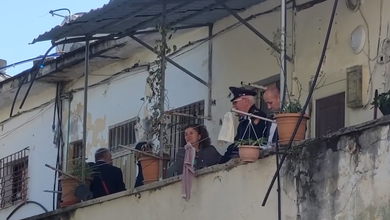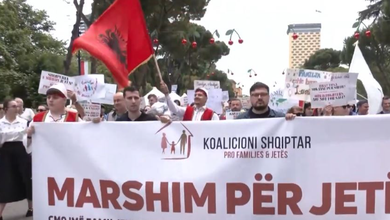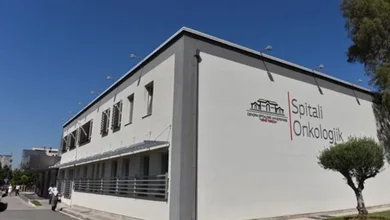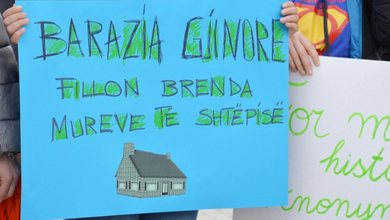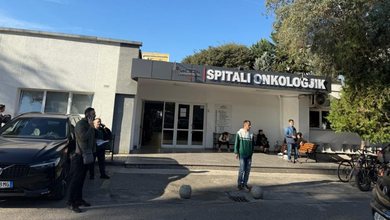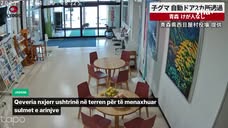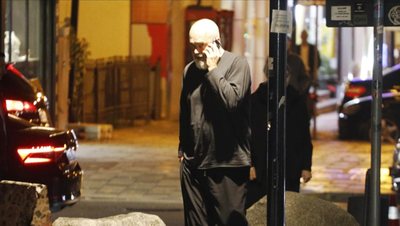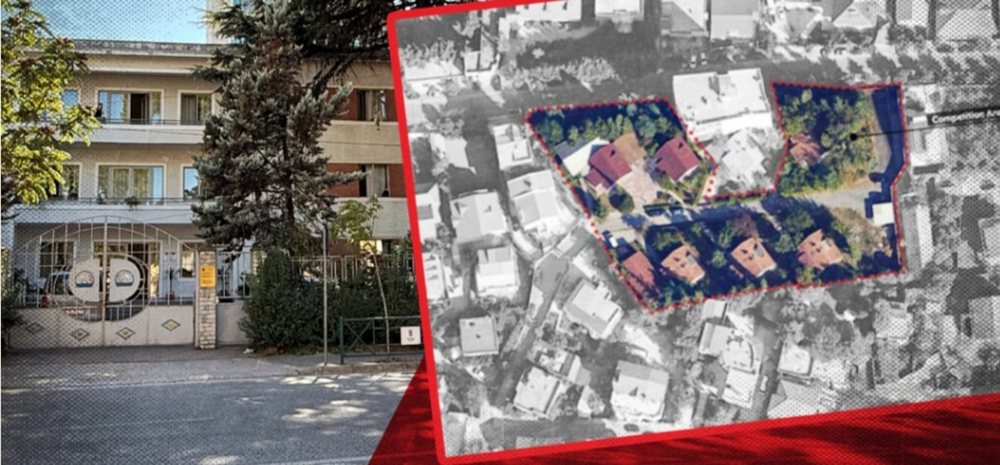
The historic building of the "Zyber Hallulli" Children's Home, which housed generations of orphans for years, is expected to be demolished to make way for the construction of a tower of at least 17 floors.
Around 36 children currently living there are expected to be relocated to another area, while the project has been pushed forward without the knowledge or consultation of the institution itself.
The Albanian Investment Corporation (KISH) has been engaged in this initiative, which on July 31st took possession of the orphanage and Labor Inspectorate building with the aim of developing it in partnership with the private sector. Experience with past calls shows that this partnership has mostly fueled the interest of private entrepreneurs.
The Corporation's call proposes that the orphanage and inspectorate be relocated to the area of the former German villas about 800 meters away and the current buildings be turned into a construction site.
Tower instead of orphanage
On September 15, KISH announced the "duo call" for project proposals and investment in the development of the so-called "Inspectorate Corps and the new Zyber Hallulli Children's Home".
She extended the original deadline, which was until October 15, (until October 27) and today, two days after the end of this deadline, there is no official announcement about what has been done with it.
The call envisaged the relocation of the offices and the orphanage to "Gramoz Pashko" street, in the area where East German diplomats had their residences until 1990.
Meanwhile, the 7,100 m² plot of land near the "Air Albania" National Stadium will be given as an incentive to private investors with the opportunity to build a maximum of 60,000 m2 of surface area and up to 5 underground parking floors.
The competition would be held in two phases; one phase for design and the other for investment.
The five best concepts would each receive a 40,000 euro reward from the government, an approach that has been followed in other KISH calls.
The restriction that at least 50% of the land remain vacant – 3,550 m² – guarantees that a 17-story building can be built on the site where the orphanage and inspectorate are currently located.
The private investor is conditioned by the requirement to release 45% of the construction area to the Corporation, an area that is likely to extinguish interest.
On the other hand, the Inspectorate Corps and the new Zyber Hallulli Children's Home are planned to be built on approximately 5,220 m2 of land, three-quarters of which will be dedicated to spaces for six residences housing approximately 40 children aged 6-15.
Offices, a library, art laboratories and community activities are also planned. It is worth noting that the relocation of the children is planned to take place only after the completion of the new buildings.
Director: "We have no knowledge"
Citizens.al contacted the director of the "Zyber Hallulli" Children's Home, Valbona Imeraj, who said she had not been made aware of the development idea.
"I don't know anything, we are continuing life normally and improving the facilities where we are," she said.
The lack of communication with the institution involved in an urban redesign project is not an isolated case. Similarly, in the case of a tower project near the “1 Maji” school, where a redesign of the school’s facade and entrance was proposed, it turned out that its leaders were not informed.
Officially, in the KISH call, the approach is argued to have been initiated by requests from the State Social Service and the Ministry of Health and Social Protection for the construction of a new building.
“[…] due to the depreciated condition and insufficient space of the existing facility,” the ministry's argument for the new building is quoted in the KISH qualification document.
The approach in question is unworthy of the government, which is spending 5 million euros to build an enclosed garden in the Prime Minister's Office - Eden Park - but which is seeking private assistance to shelter around 40 orphans.
The gentrification of Tirana
The approach required by the government with the offices and the orphanage is a clear gentrification policy, which envisages the displacement of the poorest strata to the suburbs to make way for elite investments.
The trend, known since the 1960s with the descriptions of British sociologist Ruth Glass, is being repeated in the capital under an urban development policy that favors towers and luxury complexes.
The Elbasani Street area, where "Zyber Hallulli" is located, is already among the most expensive in Tirana, with prices over 3,000 euros/m².
This gives more weight to the fact that the idea of relocating the orphanage was pushed by real estate interests.
The phenomenon has previously affected the "May 5" area, Kombinati and Astir, where the displacements have been justified by "urban development", while experts have called the process "social cleansing".
In many cases, these developments retain the firms of international "star architects" such as Stefano Boeri, Marco Casamonti, as a way to legitimize the interventions, but on the other hand, in doing so, the contrasts between luxury and social needs have deepened.
From the Library to the Orphanage, KISH's Maneuvers
Development in the area of the former German villas was also mentioned by KISH in the call for the construction of the new National Library.
In the open call on January 10, the construction of the 18-story building conceived by the XDGA and iRI studios in the former Guard of the Republic was required to be developed by private investors, who were given the opportunity to build a multifunctional building with an area of 60,000 m2 on "Gramoz Pashko" street as an incentive.
Considering that usually, half (or slightly less) of the land (5,220 m2) is used for construction, out of the area that was allowed (60,000 m2), it was understood that KISH was committed to paving the way for the construction of a 20-story building in the area of the former German villas.
According to KISH, the new library requires an investment of around 20 million euros, while the government has emphasized several times that this money would not come from the state budget.
Meanwhile, in addition to the library, the investor would also need to finance the XDGA-iRI studios to further detail its project.
However, the call failed to attract investors twice within four months and was closed without success. It is likely that this call was deemed unprofitable for private investors, leaving the government without a solution regarding the construction of the National Library.
Five months later, the incentive for a tower at the former German villas expires.
As had happened with the way it was initially proposed, without a prior explanation or a proper urban analysis, the area changes destination and is re-conceived as the headquarters for the "Corps of Inspectorates" and the "Zyber Hallulli" orphanage.
The incentive for a tower shifts from the former villa area to the orphanage site, which clearly has a greater interest in real estate development.
This maneuver by KISH does not justify the main purpose for which it was formed.
Changes to proposals and incentives without transparency, consultation, and public discussion call into question the objective of developing state-owned properties for the public interest.
From this perspective, it seems that KISH is behaving more like a real estate agency in favor of private individuals and is using the failed calls as a way to justify the reduction in requests for public spaces./Citizens


